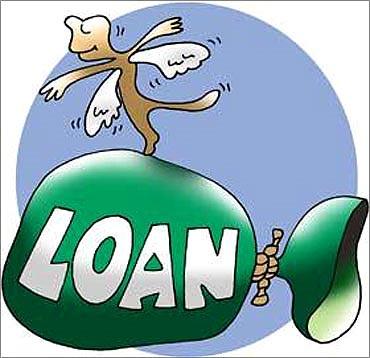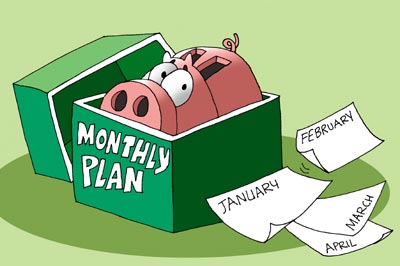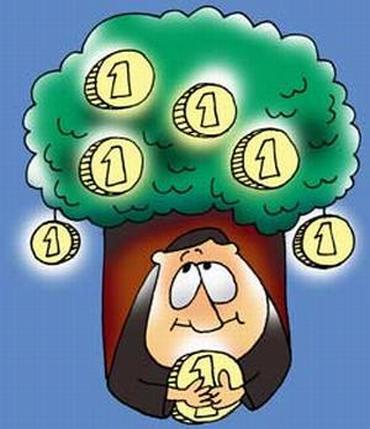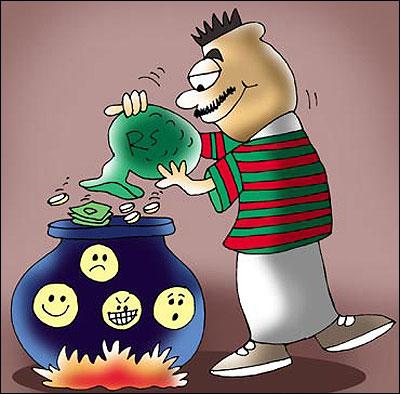 | « Back to article | Print this article |
Applying for a loan? Know your credit report
In last one year, Harshala Chandorkar, senior VP (consumer relations) at Credit Information Bureau (Cibil), says the organisation has received thousands of requests for credit reports from individuals.
Earlier, Cibil used to provide credit reports only to financial institutions like banks, housing finance companies (HFCs) and non-banking finance companies (NBFCs). Since last year Cibil has started providing these to individuals as well.
A credit report is an accumulation of all your loan accounts, mix of secured and unsecured loan accounts, loan repayment history, delinquencies, if any and so on.
Chandorkar says most requests Cibil gets are from those who want to apply for some kind of loan.
Click NEXT to send more...
Applying for a loan? Know your credit report
Credit reports have data for the last 36 months. Even one wrong information can spoil your creditworthiness and lenders are not the only one looking at your credit history.
Others like telecommunication companies, insurers, brokerages and potential employers also seek your credit report.
No, it isn't compulsory to get a credit report before taking a loan. But, it always helps. "A credit report and score is an important tool used by lenders to evaluate your loan application.
It is, therefore, important for individuals to check their credit report before applying for a loan, so that it is viewed favourably by lenders. If your credit score is low or if the credit report shows defaults and delayed payments you can take corrective actions to improve it before applying for a loan," she says. It is advised you review your report at least quarterly.
Click NEXT to send more...
Applying for a loan? Know your credit report
Here's some more:
- Correcting errors: Credit reports are updated monthly. Still, there can be errors. Therefore, check your copy meticulously and do not assume the report is correct.
"The biggest advantage of getting your credit report is that discrepancies, if any, can be rectified," says Adhil Shetty of BankBazaar.com. Say, you were issued a credit card, which you did not use but the bank has been billing you on it. Such bills will show as delinquencies on your credit report. Or, the banks has not updated the payment settlement.
If you find any incorrect information, Chandorkar says you can report it to Cibil, who in turn will take it up with the bank and update the correct data.
Click NEXT to send more...
Applying for a loan? Know your credit report
However, bankers say you will need to inform the same to them yourself. You need to return the unused card/loan documents and give the bank in writing that you don't need it.
This can take 15-20 days, say bankers. Do keep a copy of the application, as many times banks lose it and can come bank asking for the dues.
<lI> Monitoring credit: Apart from finding out whether or not you will get a loan for a car or house, credit reports helps keep a track of your unpaid debt(s), if any.
Many a times, there are outstanding dues that you have forgotten about and these show on your report.
For instance, a loan from a cooperative bank that you could not repay. Or, you refused to pay additional charges on a credit card bill for any reason. These show as defaults on the credit report. A credit report will give such information beforehand.
Click NEXT to send more...
Applying for a loan? Know your credit report
<lI> Adding missing account(s): Says a public sector banker, "Credit worthiness is not always about what shows on your credit report. The report may not show all your loan accounts. The borrower should take the initiative of informing the credit bureau about missing accounts. That way, banks will know your actual monthly outgo towards loan repayment and help you with as much credit as your pocket can take. If the lender finds out that your report is incomplete it can deny you a loan for non-disclosure of vital information."
Click NEXT to send more...
Applying for a loan? Know your credit report
<lI> Preventing identity thefts: Reviewing your credit report regularly also helps you avert identity theft. That is, when somebody uses your personal information (name, credit card number) to commit a fraud.
Identity thieves may use your details to open a new credit account and if the account turns delinquent, your creditworthiness is spoilt. These mainly occur due to computer thefts, loss of data backups and compromised information systems.
A lower score does not mean you won't get a loan at all. At the same time, a high score does not mean you can negotiate with the bank.





